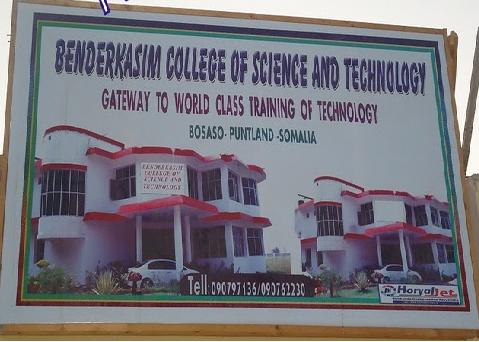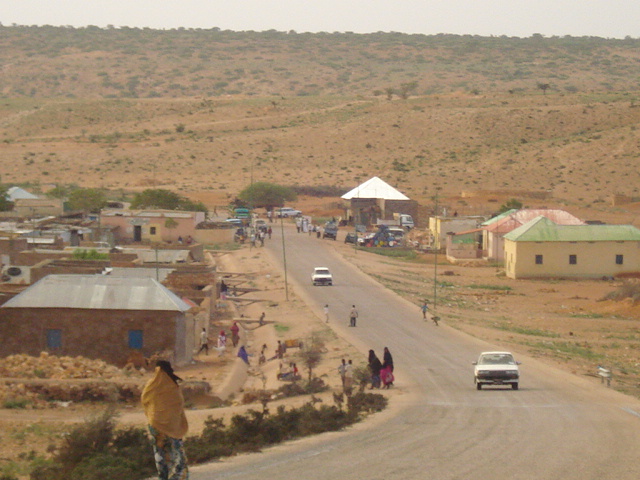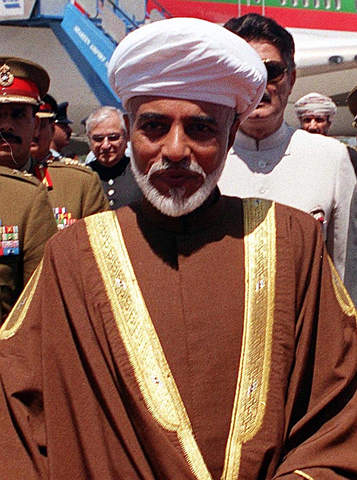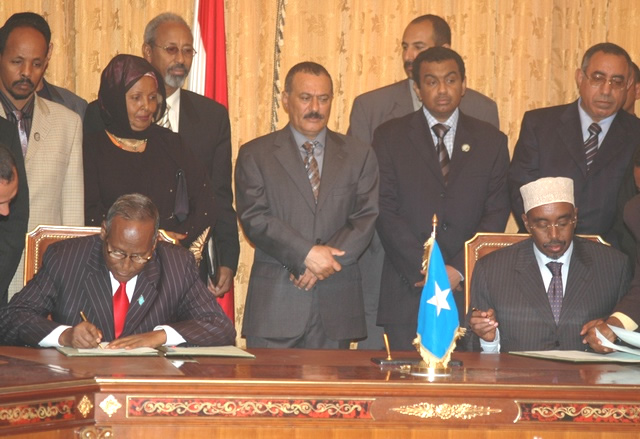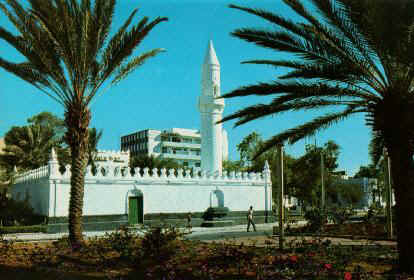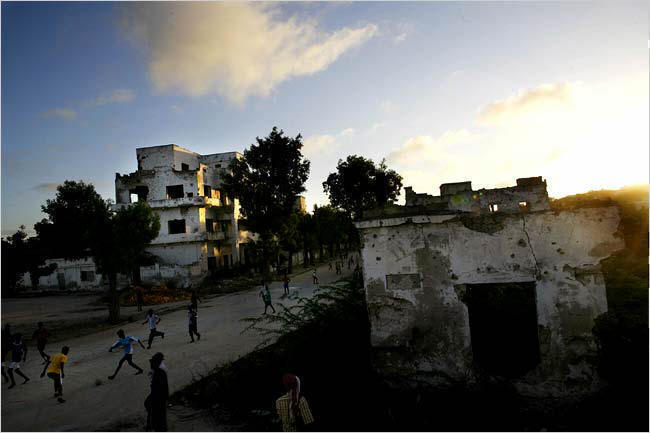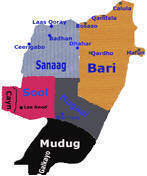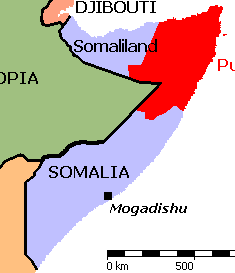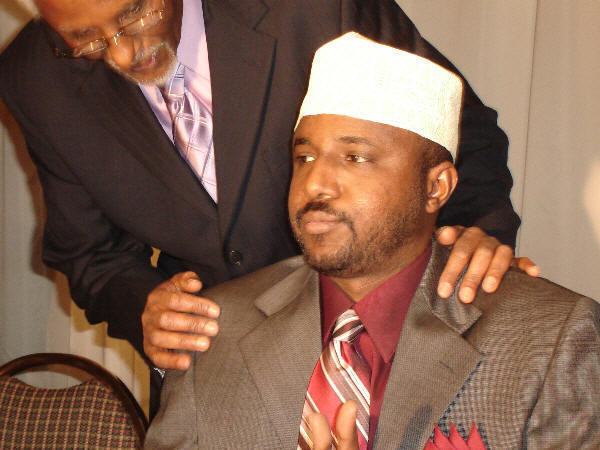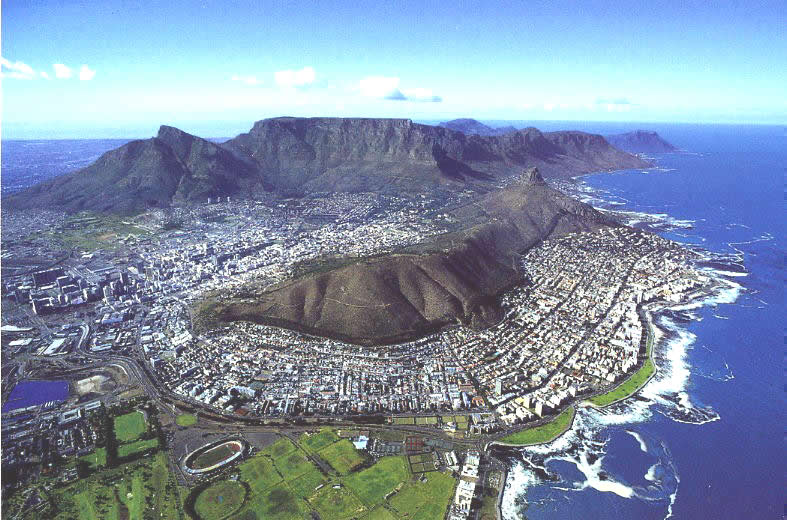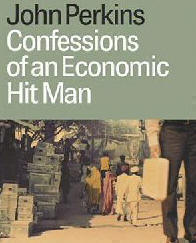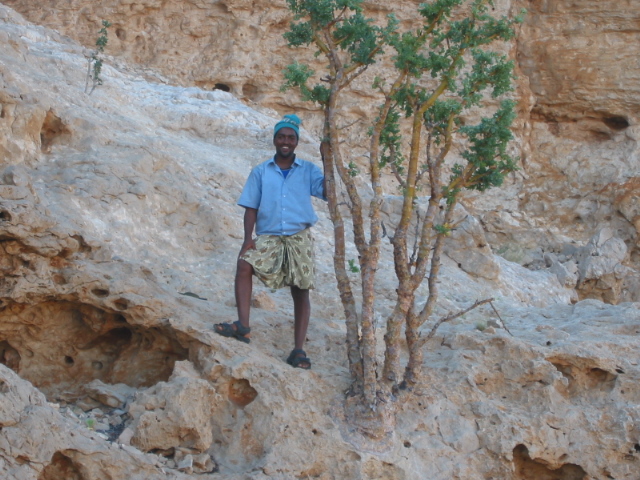
The Birth of Two Decades of Mayhem
Part III
January 29, 2011
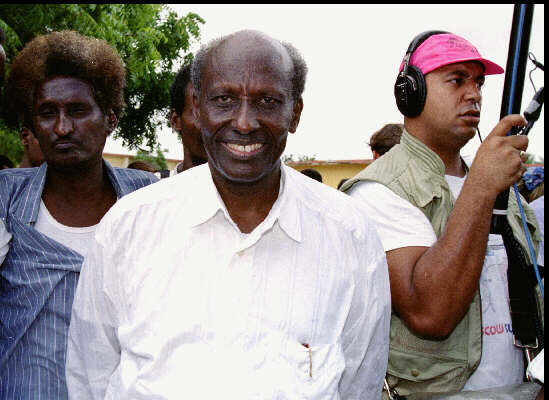
.jpg)
Clan fighter loyal to the joint force of the United Somali Congress (USC) of warlords General Mohamed Farah Aidid poses 15 May 1992 with his missile system downtown Kismayu. In the two decade since civil war prompted the fall of Somali president Siad Barre in January 1991, the country has been ravaged not only by more factional fighting, but also by famine and the total collapse of central state infrastructure.
For the �Looma Ooyaan� residents of
Introduction: Since the collapse of the Siyaad Barre regime in 1991
The history of the emergence of these clan-based political and armed factions illustrates that factions mobilized their clansmen by utilizing clanism and what Roobdoon Forum refers as Islamic Liberation Theology.
Without a doubt, warlords had legitimacy issue in mind, when addressing to the public. In their speeches, the practice of referring to themselves as good-doers and their opponents as evil-doers was the norm. They trumpeted of themselves as saviours of Somali unity, nationalists, as well as religious men who realized the necessity to end Siyaad Barre`s dictatorial regime and thus willing to establish a new all-inclusive broad-based government.
Warlords preached moral codes that concerns all walks of life � from prohibition of Haram food and drinks to the preservation of unity and stability. At the same time, militias loyal to these warlords caused mayhem � haphazardly raping, pillaging, and murdering innocent civilians. When asked about their actions, these warlords put the blame on external factors, throwing the causes of their actions to the defunct Siyaad Barre regime.
As opposed to the 1990s wars, the current wars in
For the �Looma Ooyaan� residents of
Zooming into the 1990s interviews and statements, given by the spokespersons and leaders of Somali factions, enables us to prove that clan-animosity account of the Somali civil war has not been given the scholarly attention that its magnitude warrants, even after sixteen years of clan-warfare. This clan-animosity feeling can in fact be derived from faction joint communiqu� and statements; and therefore, posting selections of these public relation statements should be a matter of concern to all Somalis � particularly, to those who are in the field of Somali Studies.
After all, clan factionalism disguised in English acronyms (formed from three or four initial letters which include the sacrosanct letter �S�) are now facts of life for Somalis. The words and deeds of the turbulent faction followers have ordained to presuppose that faction spokespersons assumed a monumental role in fuelling clan-hatred. As a result of that, the Forum rushes in to investigate and share with you excerpts of faction communiqu�s, hoping to find solutions to the current tragic political situation in
Reaction to USC Presidential Appointment Noted
Senior SNM Member Comments
January 30, 1991, 1709 GMT
[From the �Focus on
The new order in
[Silanyo] Well, after all, it is not a question of being unhappy. It is, first of all, a question of principle. Let me say right from the start, I know at least seven of those people and they are very admirable people and we have a great deal of respect for them. And we can understand the situation in which Mogadishu is, but the principle is that there has been an agreement between the organizations, the liberation movements themselves, long before Siyaad Barre was gone, that organizations will liberate certain areas in which they have much support and that any future government � temporary or otherwise � would come only through consultation between the various liberation movements and that has not happened.
[White] But Ali Mahdi Mohamed, the new president has said that he is willing to talk to you about anything you want to talk about now. Are you going to talk to him, negotiate with him, or what will you do?
[Silanyo] Well, a president is appointed by organizations or elected by the people of the country. So, SNM has not been consulted on that, how could they possibly accept it?
[White] So, are you refusing to recognize the new president, the prime minister?
[Silanyo] Well, it is quite clear, there is no question of recognition of that. SNM is controlling part of the country, and so are the other liberation movements. We are very much in support of USC, for instance, to establish [words indistinct] to make peace and order, law and order, and to establish security in the
[White] Many people outside
[Silanyo] No, no, no. This is not a quarrel. We will agree, I am quite sure. I am very optimistic that very soon, there is going to be an agreement. The only problem in the country was Siyaad Barre and his troops. But, there is no hurry to rush to appoint a president [words indistinct] when everything is still ...[changes thought] some of these forces are still there while the leaders of the organizations have not met. That, I think, is the (?only) thing. But, we are not fighting among ourselves, far from it.
[White] So, you are not going to rush into
[Silanyo] No, no, no. Out of the question. Out of the question. We will come together and definitely, we will choose an interim government or whatever, but simply something which we have all agreed upon. [end recording]
SSDF Official Reacts
January 31, 1991, 1709 GMT
[From the �Focus on
[Text] The appointment of a new interim president in Somalia, Ali Mahdi Mohamed, by USC [United Somali Congress] rebels who took control of Mogadishu four days ago, putting Siyaad Barre to flight can, hardly be said to have unified the country. There are reports of a continuing exodus of refugees towards and other rebel groups such as the SNM [Somali National Movement], and even elements of the USC are unhappy with the
[Begin recording] [Mireh] We agree with them really and we have seen that this a national problem and there should be a national solution to it and not just the solution imposed by one party or by any one movement or by any one group, otherwise there can be no real, genuine peace in the country. At the same time, there is not really a government that covers the whole territory and we feel it leads really to more confusion, to more conflict and that is not what
[White] So, what do you want to happen now?
[Mireh] Well, we would like to see a meeting, a conference of opposition movements, of elders, of the Manifesto Group, of the USC itself and to sort out, discuss the problems nationally, have a real dialogue and I think that we do not care who becomes the president. It is not be a problem for the country who is the president. The problem for the country is to have a government, a genuine democratic government, agreed upon by all Somalis.
[White] Where should this meeting take place?
[Mireh] Well, I think it should take place somewhere, let us say, in a friendly country. At this moment,
[White] Why not?
[Mireh] It is confused. It is still in the shock of the terror that happened between the departing dictatorship and the new victors in the field. So, it is not really safe. Refugees are pouring out of the country into
[White] How about you going back there yourself to join in the dialogue?
[Mireh] Well, the organization, as you know, will appoint someone; whether it is me or some other individual or what not. It is not a matter of an individual, it is a matter of the principle, you know, that there should be a meeting of the opposition forces in the interest of really arriving at a national solution rather than, you know, some form of solution imposed upon the country.
[White] Don`t you feel that this government now needs some support and people like yourself, elder statesmen like yourself should rush back home and give them some support?
[Mireh] That is a good question. They should have really realized that. And instead of forming a government, they should have called a meeting to show a really good faith to the country, so that they can win the trust of the people, the trust of the opposition movements. But now, everything, you know, is shrouded with distrust and suspicion. Why the rush to establish a presidency and prime ministry, is that the solution?
[White] You said that refugees were continuing to flee the country. What kind of numbers are they arriving in?
[Mireh] I really cannot tell you the numbers, but Kismaayo, which is the southern tip closer to the borders of
USC`s Aydid Not to Recognize Interim Government
London BBC World Service
[From the �Focus on Africa� program]
The USC [United Somali Congress] interim government in
[Aydiid] During last 10 months, I was leading the struggle of USC and I have succeeded, together with my people, mujahidiin, and other political other political members of my organization to catch nearly all central regions-that is Mudug Region, Galguduud Region, Hiiraan Region, and Middle Shabeelle Region. During this struggle, we have held a congress inside the country. The congress has chosen me as the chairman of USC. The participants of the congress were 191. Up till now, I am the chairman of USC.
[
[Aydiid] During that fighting in
[
[Aydiid] Well, I avoided any clash with them because, you know, I preferred to solve the problem peacefully and politically. And, really, now I am in very good position to win this policy which preferred instead to assist them.
[
[Aydiid] Well, they wanted absolutely to hijack the power. This is their (?main) objective, and they wanted to continue the policy of Siyaad Barre. And, we have seen what they are doing recently after they formed this government.
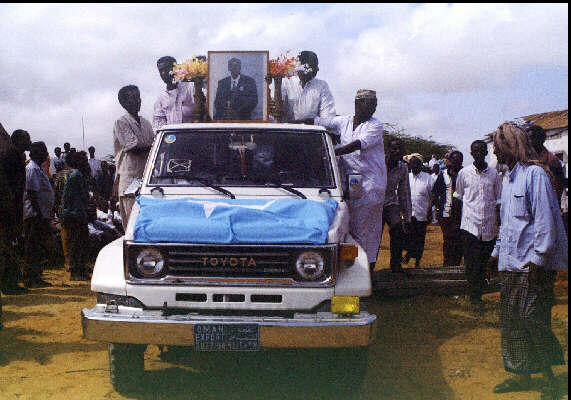
Aideed`s Funeral
|
|
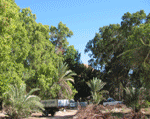 Sawirro Somaliya 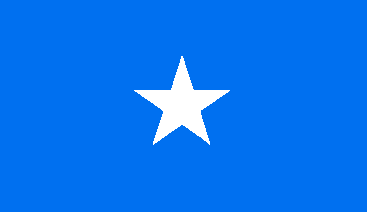 |
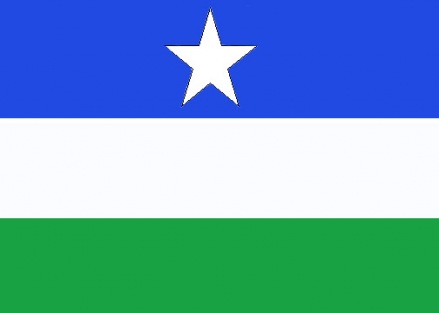
|
GOVERNANCE
The Scourge and Hope of Somalia A New Book By Ismail Ali Ismail 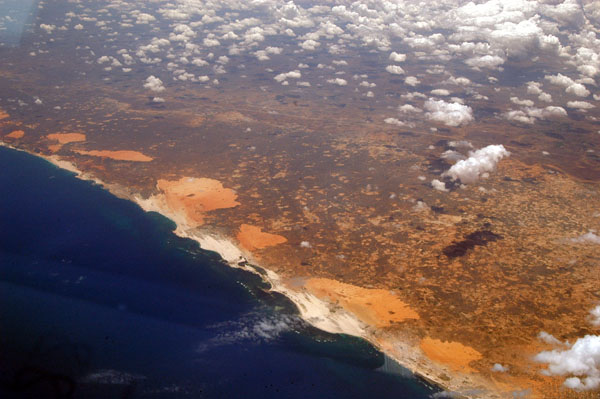 Which Way to the Sea, Please? By Nuraddin Farah Dhulkii Burcad-Badeedda .jpg) Budhcad Badeed Weli Qiil ma Leeyahay? 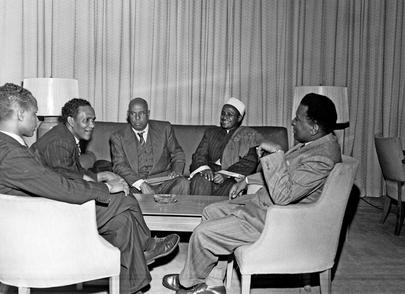 SYL LETTERS By A S Faamo |
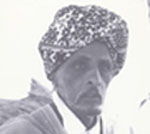 |
 |
© Copyright BiyoKulule Online All rights reserved�
Contact us [email protected] or [email protected] |

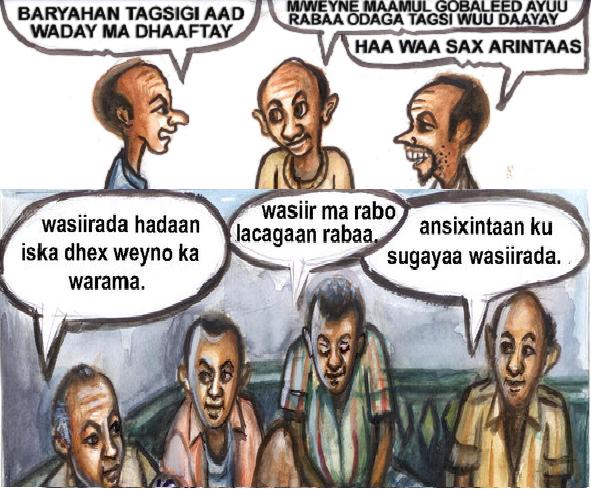
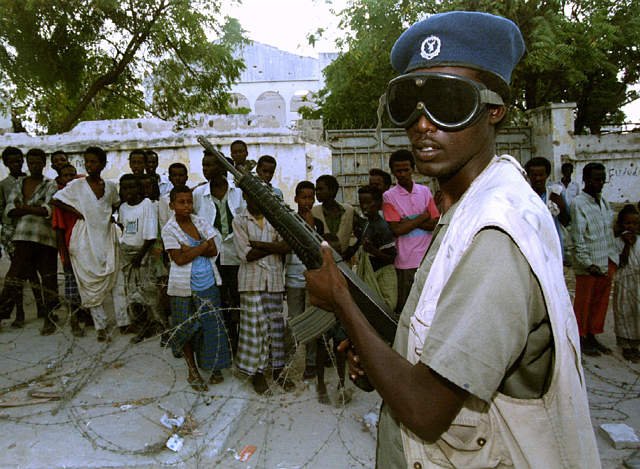


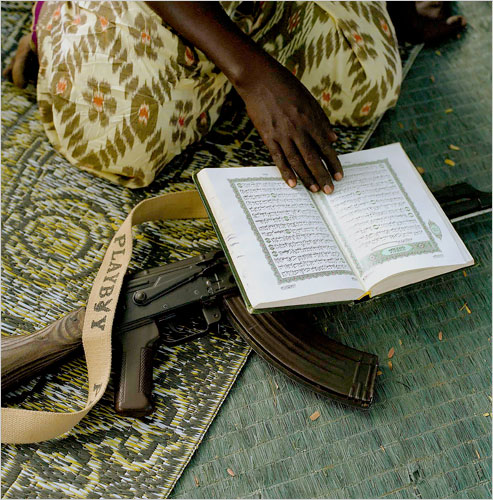

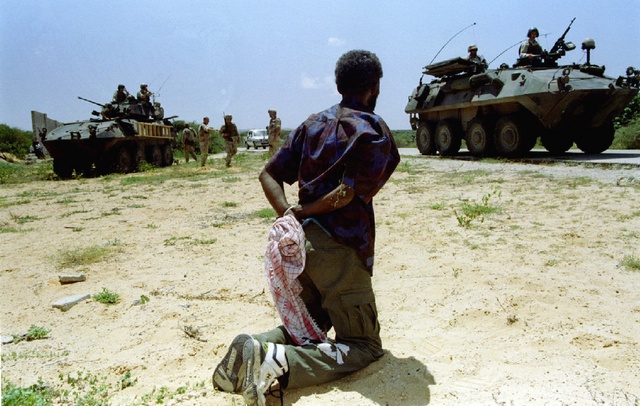
.jpg)


